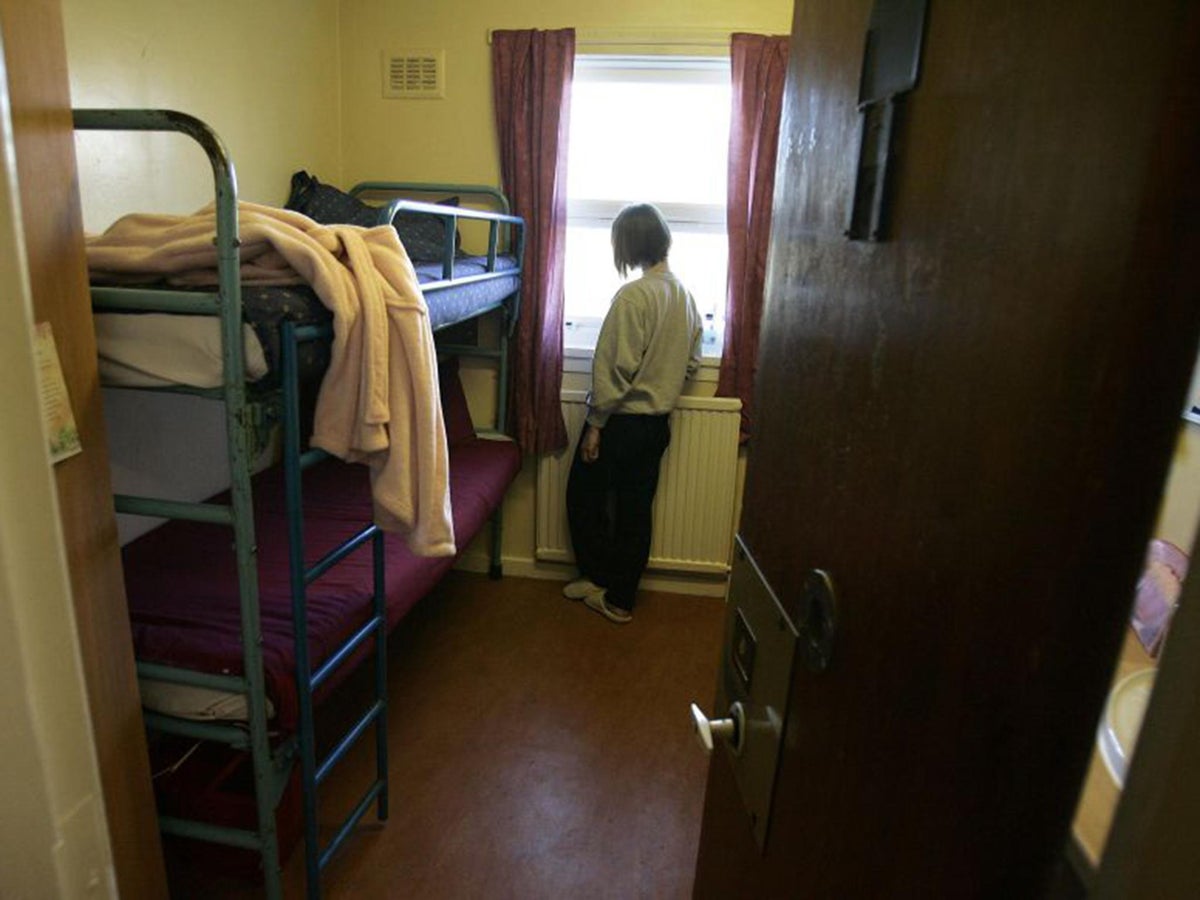
Increasing numbers of women are being jailed, despite a government pledge to cut the number of female prisoners, as a wider overcrowding crisis grips the sector.
Some 3,604 women were behind bars at the beginning of October this year – up 15 per cent since January which amounts to nearly 500 more women. And the most recent Ministry of Justice data estimates that the number will surge to 3,800 by November next year.
The Prison Reform Trust said it was concerned the figures showed a reverse of a more than decade-long trend which saw the number of women in prison fall substantially from 7,418 in 2014 to 4,120 in 2022.
It comes as the total number of people imprisoned in England and Wales has surged to record levels – with just 557 spaces left – with ministers considering releasing prisoners early in a rush for ways to ensure prisons do not run out of available spaces. The issue has been impacted by a push for longer prison sentences and lengthy court backlogs clogging the system with remand prisoners awaiting trial.
Campaigners warn the latest figures on the female prison population undermine the government’s commitment to cutting the number of women in prison – arguing that short sentences often handed out to women “fuel reoffending”.
Research, by the Prison Reform Trust, found around six in in 10 women sent to prison last year were sentenced to less than six months behind bars.
Shoplifting was the most frequent offence – making up just over a third of women’s prison sentences shorter than six months in 2022. This is a far larger proportion than men for whom “theft from shops” makes up just 16 per cent of sentences of less than six months.
Half of all female prisoners committed their offence to fuel the drug use of someone else, Ministry of Justice data shows— (PA)
Researchers found stark differences between police forces – in Nottinghamshire 73 per cent of jail sentences handed out to women last year were for less than six months, while 43 per cent given to women were shorter than six months in Merseyside.
Indy Cross, chief executive of Agenda Alliance, told The Independent: “Banging a mum up for theft from shops, such as stealing nappies or Calpol for a child, is not the answer.”
Ms Cross argued that “community solutions” were needed instead as she warned we must “move away from short sentences for women once and for all”.
She added: “Short sentences don’t prevent crime, they fuel reoffending. Our work with disadvantaged women shows too often they end up in prison after a trauma or crisis. Such as unaddressed mental ill-health; loss of income and poverty, abuse by a male partner. Putting a woman behind bars will wreck her life, and all too often the lives of her children and families.”
Charities believe that even a short time in prison can have a uniquely detrimental effect on women’s chances of employment— (PA/The Independent)
Pia Sinha, Prison Reform Trust’s chief executive, said: “16 years on from Baroness Corston’s seminal review on women’s offending, we continue to see too many women being sent to prison to serve pointless short sentences.
“The government’s own evidence shows that community sentences see fewer people go on to commit crimes in future.”
Mark Day, the organisation’s deputy director, said it is “deeply troubling” the women's prison population is increasing as he warned this goes “against the government's stated ambition to reduce the numbers of women in prison”.
A previous report by the Prison Reform Trust found that 80 per cent of women in jail were there for non-violent offences, while Ministry of Justice data shows almost half of all female prisoners say they committed their offence to support the drug use of someone else.
Janey Starling, co-director of Level Up, which campaigns to stop the imprisonment of pregnant women, said: “Imprisoning women for shop theft is sadistic. If a mother is shoplifting in order to feed her children, the appropriate state intervention should be to take away her poverty – not her liberty.
“A short sentence in prison is enough time to lose your home, and even your children if there is nobody to take care of them. There is no justice in sending poor women to prison just to make them even poorer once they come out.”
Frontline service providers have previously warned that women in prison are often the victims of more serious offences than those for which they have been convicted.
Dr Jo Easton, acting chief executive at Unlock, a criminal justice charity, said: “A prison sentence or suspended sentence of just one day will be disclosed on higher level DBS checks forever – opening people working in many professions up to stigma, prejudice and discrimination at every job interview, however old or irrelevant the offence.”
She noted its recent research discovered that women are subject to the large majority of such checks with this likely to be the result of them being over-represented in sectors like teaching and care work.
A spokesperson for the Ministry of Justice said: “Custody is always a last resort for women and the number of female prisoners has fallen since 2010.
“Earlier this year we launched a plan to support female offenders to turn their lives around, backed by up to £15m worth of additional investment in women’s community services. The lord chancellor will be setting out a programme of criminal justice reforms in the coming days.”







